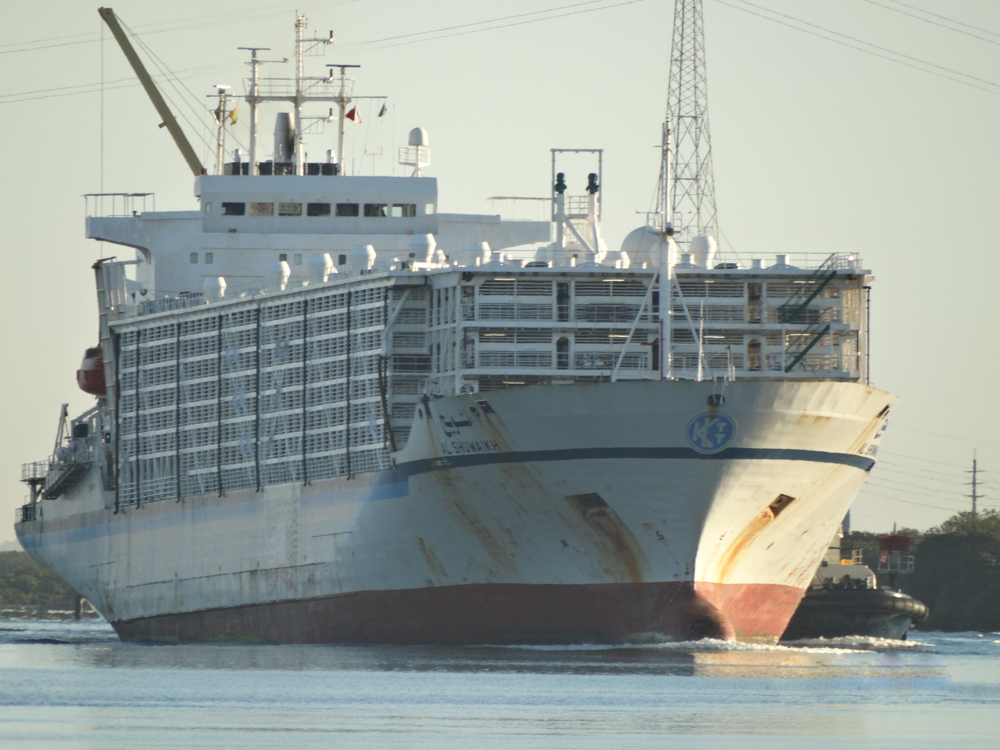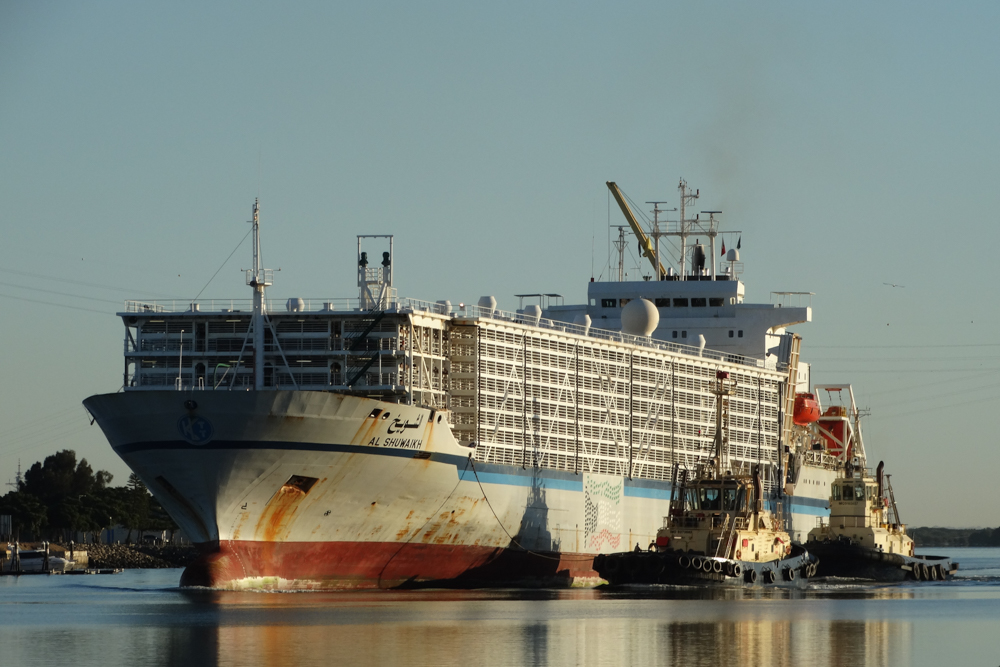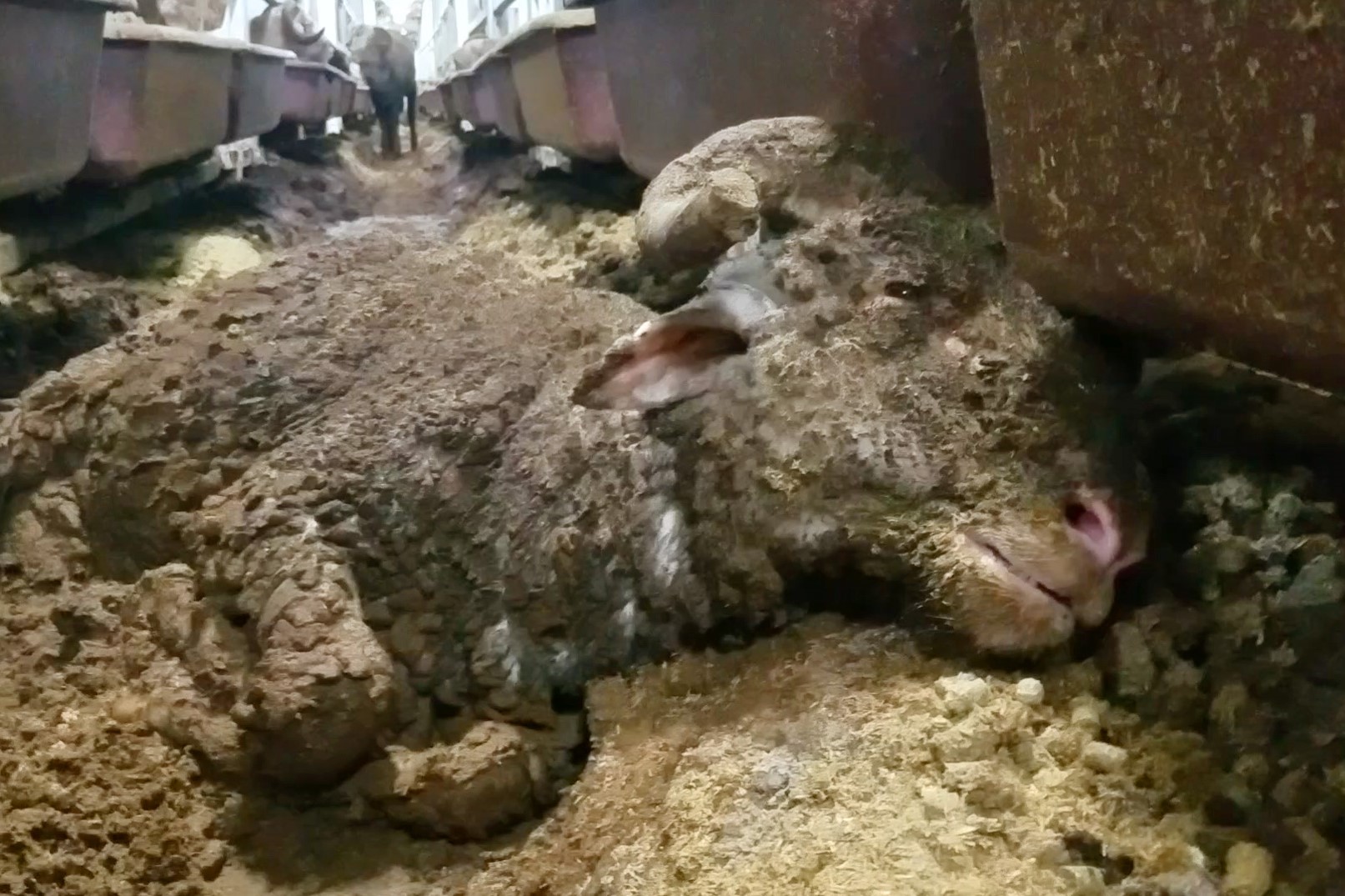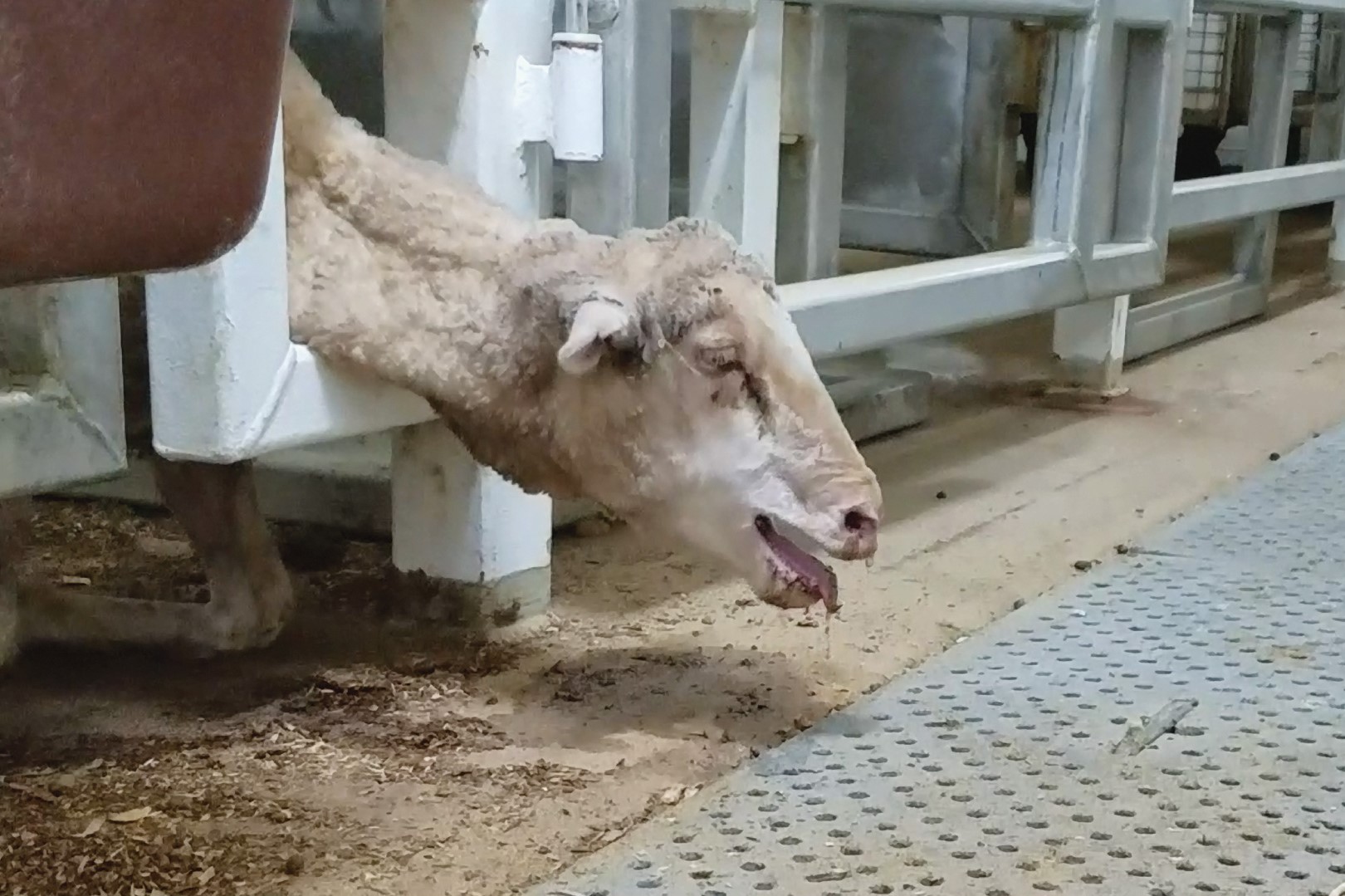Another live export ship heads for Pt Adelaide, amid worst months for mass sheep deaths
May 04, 2018Horrific footage of dead and dying heat-stressed sheep taken on-board the Awassi Express is still fresh in many people’s minds, after last month’s 60 Minutes expose.
Now another live export vessel is about to return to Port Adelaide to load its next shipment of sheep – and it’s part of that very same exporter’s fleet.
This Emanuel Exports shipment is especially concerning, being the first this year to depart from South Australia during the Middle East’s summer months (May to October), when on-board animal deaths escalate.
Ageing Al Shuwaikh live export ship due to dock in SA this weekend

In the midst of ongoing public outrage following the 60 Minutes expose – and the Federal Opposition calling for all shipments to the Middle East to cease pending the outcome of (yet another) live export review – it appears to be business as usual for Emanuel Exports.
One of its two oldest vessels, the 38-year-old Al Messilah, is on its way to Kuwait and Qatar with 68,000 Australian sheep on board. The other – the 32-year-old Al Shuwaikh – is due to dock in Port Adelaide this Sunday night.
Emanuel Exports has arguably the worst animal welfare record of all live exporters sending Australian sheep, cattle, goats and camels overseas. Certainly, it is unmatched when it comes to sheep suffering on long-haul (three- to five-week) shipments to the Middle East.
Much of that suffering and thousands of sheep deaths have occurred in overcrowded pens on the Al Messilah and the Al Shuwaikh, both of them originally designed and built for non-living cargoes.
Al Shuwaikh’s outdated two-tier design adds to animal suffering

The Al Shuwaikh live export ship has a two-tier decking system (two layers of sheep pens, stacked on top of each other on some decks), which makes animal inspection and proper ventilation difficult.
Problems with ventilation and difficulties monitoring the welfare of sheep on-board ships with the two-tier design were among the concerns livestock veterinarian Dr Lynne Simpson raised with the Federal Government regulator in 2012. Not long afterwards, the Federal Government terminated her contract as a live export vet.
The Federal Government has also been warned in the past about the animal welfare risks associated with the use of old ships to carry livestock. Yet Australia has no age limits on vessels transporting livestock.
Even sections of the industry itself are advocating for an end to ageing two-tiered ships. A report provided to the Federal Government by another live export company operating out of Australia, Wellard, recommended banning two-tiered vessels and putting a 25-30 year age limit on livestock vessels.
The report claimed: “There are more older livestock vessels servicing Australian ports than any other shipping category, despite the sensitive nature of the cargo they are carrying.”
It’s not just about the body count – wide-scale suffering is the norm

The Federal Government regulator does not investigate a shipment unless 2% of the sheep on that ship have died en route to their destination. The Al Shuwaikh ship has a capacity of 80,000 sheep – so, when at capacity, more than 1,600 sheep must die before the exporter is obliged to report it and the Federal Government will investigate.
That suggests up to 1,599 sheep deaths on board a live export shipment of 80,000 is considered an acceptable part of the business model.
It has taken the efforts of a brave Pakistani whistleblower to finally prompt the Federal Department of Agriculture to acknowledge that “mortality events are only one indicator of welfare outcomes on board a vessel”.
Because of this 2% rule, the tens of thousands of sheep that suffer, yet somehow survive, the ship journey have done so without any regulatory consequence for anyone involved.
The exporter, the importer, the ship captain, the on board Australian Quarantine and Inspection Service accredited/exporter-employed vet, the crew – no-one is held responsible for the wide-scale, extreme animal suffering we saw on the Awassi Express shipments, unless a reportable number of animals die.
Provided that the live export vet’s report states the number of animals to die en route came in under 2%, there is no regulatory consequence. None. Not even if every single animal suffers horribly during the weeks at sea.
Few consequences for exporters when thousands of animals die on board

Even when more than 2% of animals have died during a shipment, the consequences for exporters have been minimal.
Though it has powers to do so, the Federal Department of Agriculture has never fined nor prosecuted any live exporter, no matter how seriously animals have suffered or how many animals have died on board their ships.
Vets and animal welfare groups including RSPCA Australia have warned about the high risk of shipping animals from the Australian winter into the northern hemisphere’s summer for many years. The science around heat stress in sheep is extensive and conclusive.
Actions proposed by the live export industry, such as reducing stocking densities and unloading at lower humidity ports first, will not prevent sheep suffering heat stress during the Middle East’s summer months.
It’s time for this cruel trade to end – join the call

All live export is cruel, but the long-haul exports during those northern hemisphere summer months are the worst – and the deadliest.
In the past five years alone, more than 61,000 sheep have died on live export ships. That is roughly an entire shipload of sheep.
The Awassi Express shipments seen in the 60 Minutes footage are not “isolated incidents”. Sheep on long-haul shipments to the Middle East during the region’s summer months of May to October have suffered for decades.
Tragically, we expect that the animals due to be loaded on to the Al Shuwaikh at Port Adelaide will be exposed to the same sorts of inherent suffering. And this will occur despite recent polling finding 80% of South Australians want live export to end.
RSPCA South Australia believes it’s high time our state stops its reputation-damaging involvement in this inhumane and unnecessary trade. Please join us in demanding a phase-out of long-haul sheep shipments from SA. Add your voice here.




This is absolutely terrible, it starts with the farmers crying crocodile tears about how their well treated animals on farms are treated like this. Bullshit, they don’t care, their still selling them at a piddly price. The government want their 40 million every year and don’t care how the poor animals suffer, just turn your back. These ships are disgusting and old, the middle east dont care. I just cant believe with all the tv news, protests, outrage, emails, sadness, abuse, torture, that it happening this weekend. My god, new zealand stopped this, why cant we?
It all starts with the farmers. They should be on to the Department of Agriculture. The live export ships is the destination, not the journey. So? Start action at the source. Theres an old saying “cut your cloth according to your measure”. Ask yourself, do I need my animals to pay such a painful price for my livelihood and that $40 million the government tskes? Less animals, less profit, less pain, new approaches and no animals to export = NO LIVE EXPORT. Please dont be greedy the animals beg you.
Stop this horrific animal cruelty!!!
I absolutely hate Live Animal Export . I really want people to support RSPCA or Animals Australia Organisations , so we can stamp out this cruel trade. No more animals out of Australia ????
Agree with above
How can we call ourselves civilised if we do not allow the suffering of these gentle animals to fill us with despair. There is no justification for the continuation of this practice. NZ band life exporting in 2007 their industry has not suffered.
This kind of live animal transport must stop asap. It is bad enough to spend your last days in these conditions onboard a ship – then death. What the hell is wrong with humans to cause untold suffering??
Please stop live animal exports and put an end to dreadful animal suffering and death. It’s a disturbing sign of our modern times in a so-called civilised world and Australia needs to act.